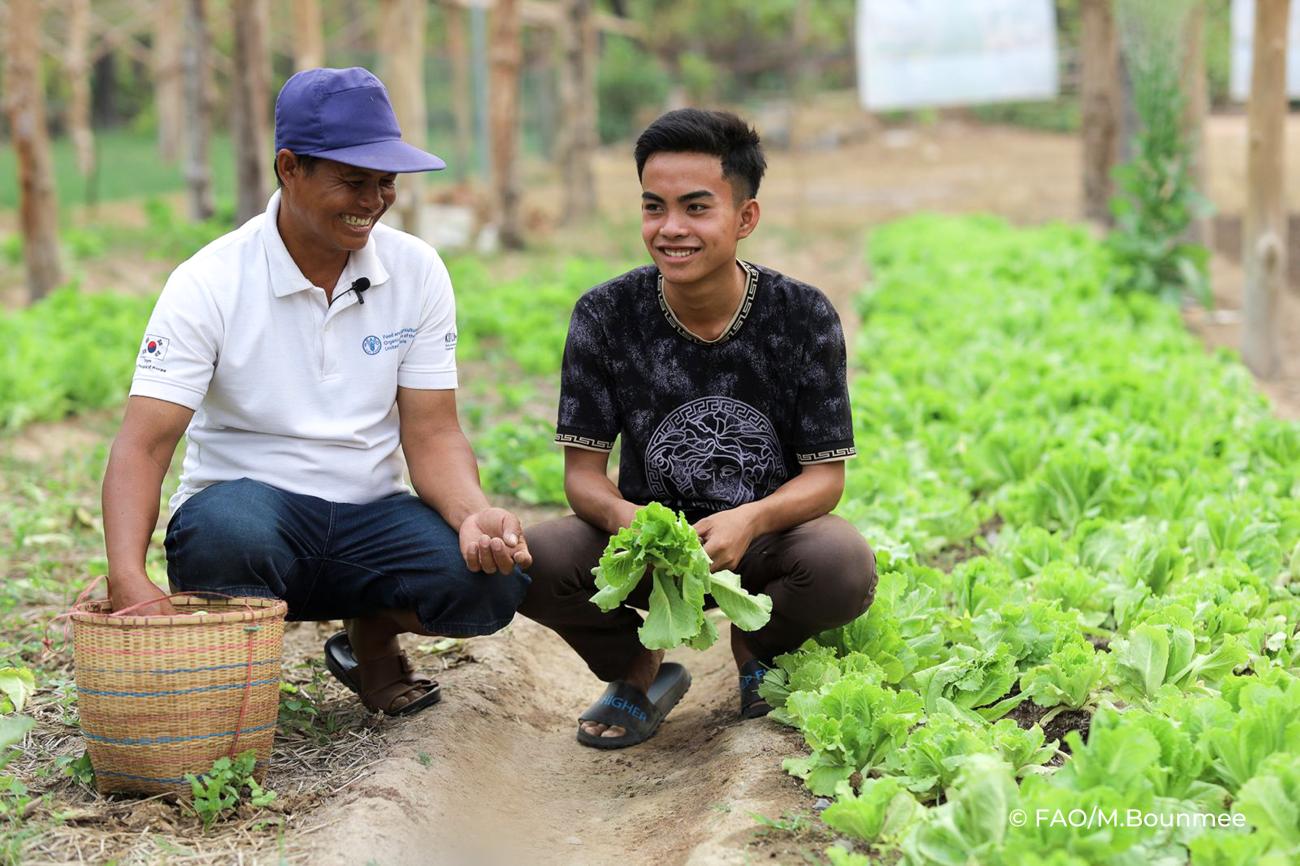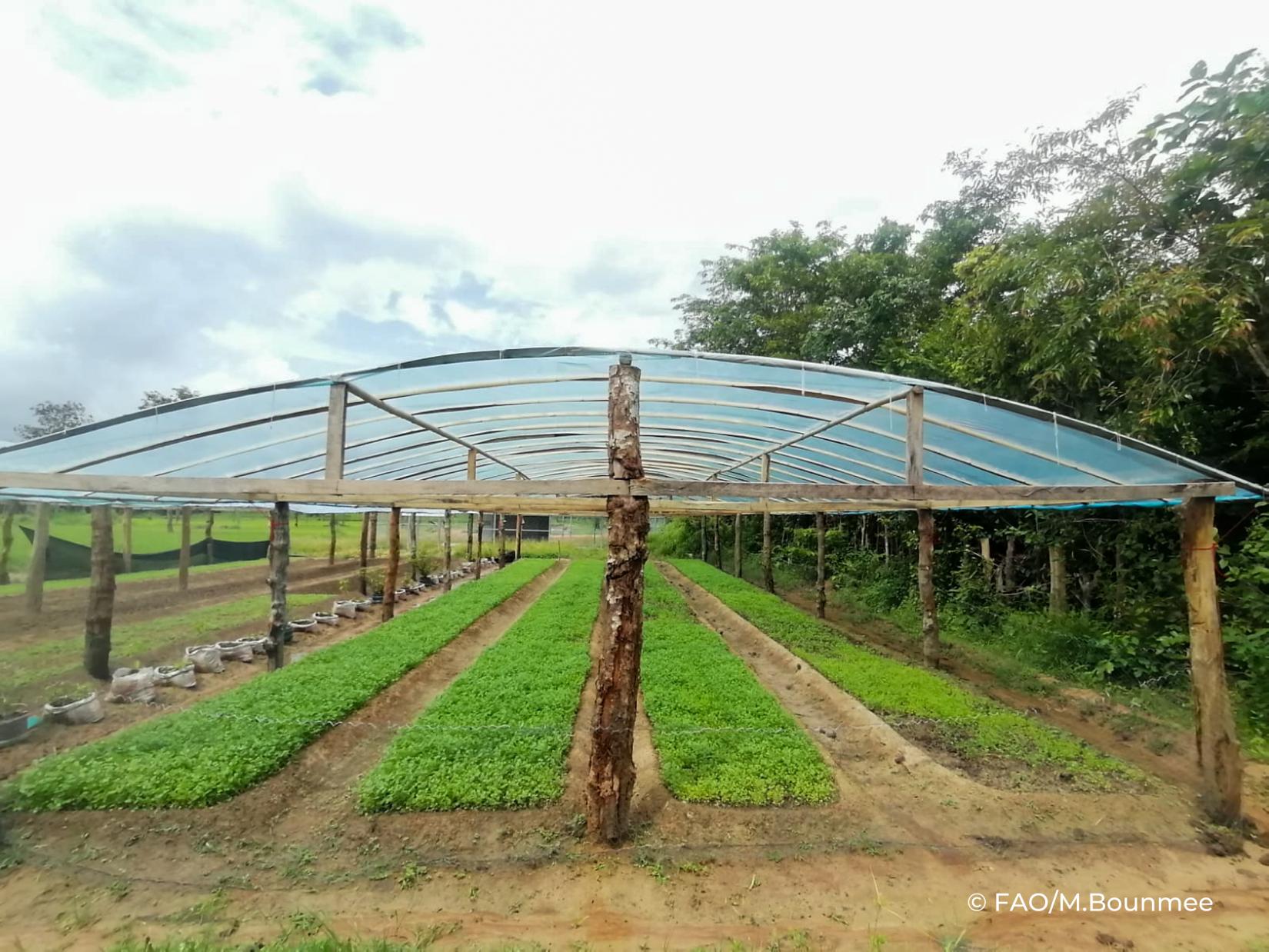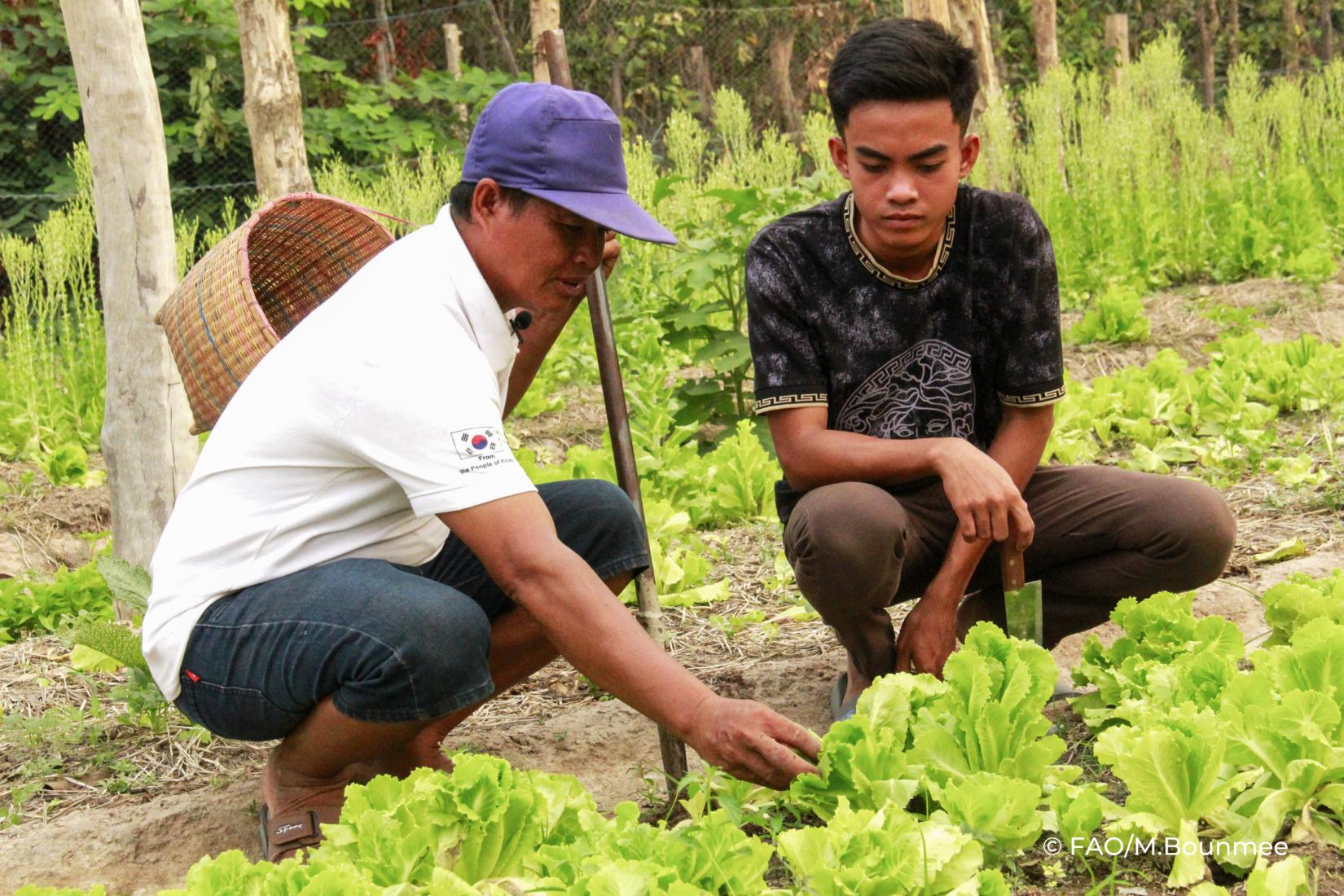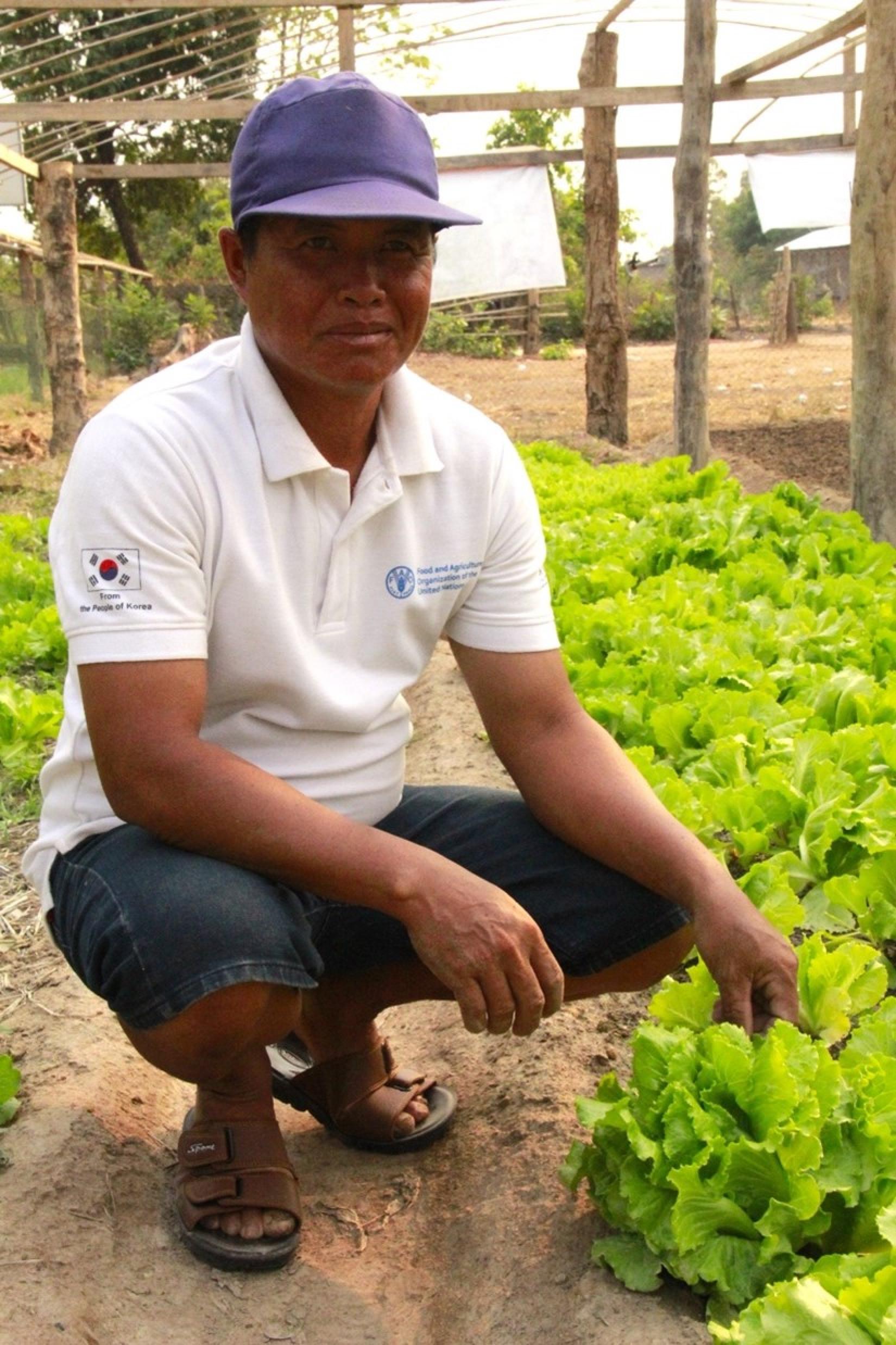A garden of hope and prosperity

“Building Climate-Resilient and Eco-friendly Agriculture Systems and Livelihoods”
“Building Climate-Resilient and Eco-friendly Agriculture Systems and Livelihoods” (Climate REAL) is a project implemented by the Food and Agriculture Organization of the United Nations (FAO) with financial support from Korea International Cooperation Agency (KOICA) as part of KOICA’s Integrated Programme for Climate Resilience and Empowerment in Attapeu Province, Lao PDR.
Five beneficiaries share the positive changes experienced from participating in the project.
Securing a better future for his children is what inspires Mr. La Xayyavieng to work hard and continue to find ways to earn a stable income from the land. For the 46-year-old father of three, his great passion is clear in his determination for his children to gain knowledge and experience abroad to bring back to the family land.
“Deep in my heart, I have always known that agriculture is the lifeline for us to survive and to grow. Even though the family has experienced hardship, I have been determined to send two of my kids to Vietnam to learn agricultural know-how and best practices. Upon their return, I expected big improvements to my land.”
However, it is Mr. La himself who is already creating change. After being selected under the Climate REAL project as one of the beneficiaries from Phok Village, Saysettha District, Mr. La has transformed his agricultural practices and has been able to increase his income by 160% in just one season.
For years, Mr. La’s total income was less than LAK 30 million per year – barely enough to satisfy the basic needs of the family. Lack of access to alternative technologies and knowledge limited Mr. La to traditional practices, with the main sources of income coming from rain-fed rice farming and planting vegetables during the dry season. This meant that making a living during the rainy season was difficult. Growing vegetables was not an option at all as the vegetables would rot and the crop would be destroyed.
Through project interventions, successful vegetable farming in both the rainy season and dry season is now a reality. It was during learning and knowledge exchange visits to Savannakhet and Champasak Provinces, that Mr. La realized what the future could hold. “I knew from the bottom of my heart that greenhouses would work for me as soon as I saw them and understood what they were,” he explained.

For the greenhouse to be a success, Mr. La would further develop his skills through Farmer Field School training and would receive agricultural inputs to get started. A key part of the skills development was Agribusiness Training, which provided Mr. La with essential knowledge on understanding market needs, business operations and analysis. From the first rainy season crop, Mr. La reported that he was able to earn nearly as much in just four months as he would previously earn in a whole year.
In addition to the vegetable seeds for the rainy season, the Climate REAL project also supplied watermelon, cucumber and corn seeds for Mr. La to experiment with during the dry season. These proved to be a huge success, with Mr. La seeing a return-on-investment of up to 900% for watermelon. The solar-powered small-scale irrigation system has been a key factor in increased profits as Mr. La does not have to cover the cost of electricity to irrigate.
“Only 75 days of work and I earned a income of LAK 38.5 million from selling watermelon and LAK 2.65 million from selling cucumber. Where else I could earn such money from what I am passionate about?”
The Climate REAL project has identified Mr. La as a model farmer as he builds his skills and knowledge from this project in addition to others conducted in the district prior to Climate REAL interventions. Farmers in Phok Village – especially members of Mr. La’s production group – are already seeking his advice for the coming planting seasons. The plan is to grow tomatoes, spring onion, lettuce and coriander, as the demand and prices are high.
To pave the way for his children, Mr. La has also already started to transfer his knowledge and know-how to his youngest son, who is now 17 years old and studying at secondary school in the district. For Mr. La, the future is looking brighter.







